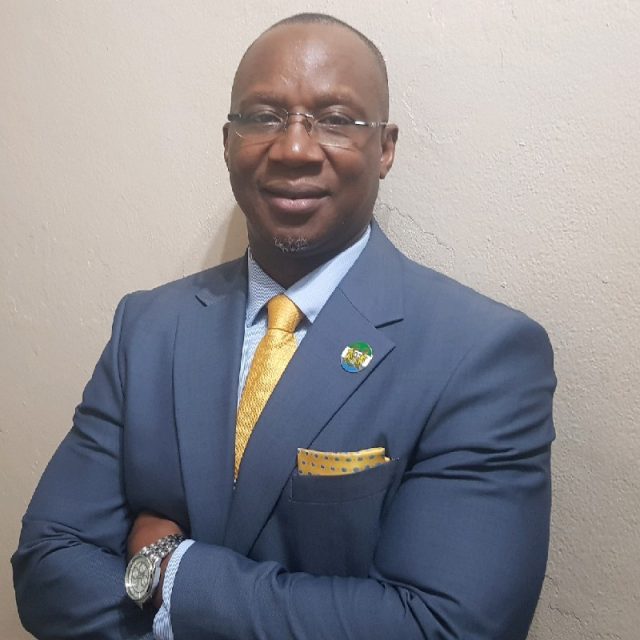Sierra Leone’s Minister of Mines and Mineral Resources, Julius Daniel Mattai, has made a very strong case for Africa on Just Energy Transition (JET) at the recent Africa Oil Week 2024 in Cape Town, South Africa.
In his Keynote Address at the event, Mattai maintained that urgent answers are needed to what Africa’s future clean energy transition should look like in a way that makes sense for Africa’s energy realities and aspirations.
Saying Just Energy Transition is a crucial priority for Africa’s development, he said this will depend heavily on the timely accessibility and availability of green minerals, which require a sound mineral inventory based on geological, geochemical and geophysical mapping; mineral exploration and exploitation; and the assessment of abandoned mines, old mine tailings and waste rock piles.
Mattai said no society has been able to develop without energy, and that access to affordable, reliable, and sustainable energy is a major challenge in Africa.
Currently, 900 million Africans lack access to clean cooking technologies, while 600 million lack access to electricity.
“To me, an energy transition is ‘just’ if it is affordable, meaning that it is within relatively easy reach of the end-users, and available, meaning that the supply of energy is adequate and reliable to meet the demand of end-users,” he stated.
Mattai emphasized that since energy is the main enabler of socio-economic development and an essential component of the UN SDG 2030 and AU Agenda 2063, Africa should responsibly harness its natural resources, including fossil fuels, renewable energy resources and green minerals, to energise Africa – invest in local processing facilities, develop a skilled workforce, encourage public-private partnerships, and implement favourable tax policies.
According to the Minister, mining of green minerals is capital intensive, energy-intensive (currently fossil fuels) and risky, with a lot of sunk cost, and technical evolution of green minerals is shaped by several shifting and overlapping *challenges* which affect Africa disproportionately. They include:
1. Physical constraints and challenges in keeping up with rising demands for certain green minerals, especially in the short to medium term, as the mining and processing landscape of green minerals is geographically concentrated, and the green mineral mining industry is dominated by few major companies who control a significant portion of global production and trade.
2. Disruptive technological innovations affect the demand for green minerals through factors such as substitution, efficiency improvement, design optimisation and the introduction of new materials.
3. Circular economy, including more advanced and widely adopted methods of reducing, reusing and recycling green minerals.
Helping African countries to realise new opportunities in supply chain could improve resilience while narrowing the global decarbonisation divide. African countries should not just be exporting raw materials but to also move up the value chain and attract higher margin activities such as mineral processing.
4. Lack of access to finance, market and technology – renewables are still critically underfunded in Africa, signalling urgent work ahead.
5. Weak governance of natural resources and under-resourced local geoscientific bodies/institutions.
6. Joblessness caused by export of raw/unprocessed green minerals and limited mineral beneficiation and value addition.
7. Limited African-based exploration and mining companies – over reliance on foreign direct investments (FDI) and over dependence on imported technology due to limited R&D capability.
8. Infrastructure gaps (power and transportation) – Large-scale deployment of renewables in Africa hinges on parallel investments both in transmission and distribution grids and storage infrastructure
9. Lack of regional cooperation and harmonization of mining policies and practices.
The official stated that Africa’s green minerals will be explored and developed regardless of the challenges and risks. He however cautioned that the key question is how will Africa’s green minerals be explored and developed and to whose benefit?
He argued that for Africa, energy poverty poses a more immediate existential challenge than climate change, so Africa should not be in a hurry to abandon fossil fuels (coal, oil and gas) – “we must carefully consider how the implementation of the JET would affect our countries and people and responsibly exploit Africa’s God-given fossil fuels for our own use”.
He advised African countries to remain committed to decarbonisation and sustainability while prioritizing their own development agenda and industrialization using natural gas – that is Fair, Equitable, Just & Sustainable Energy Transition.










